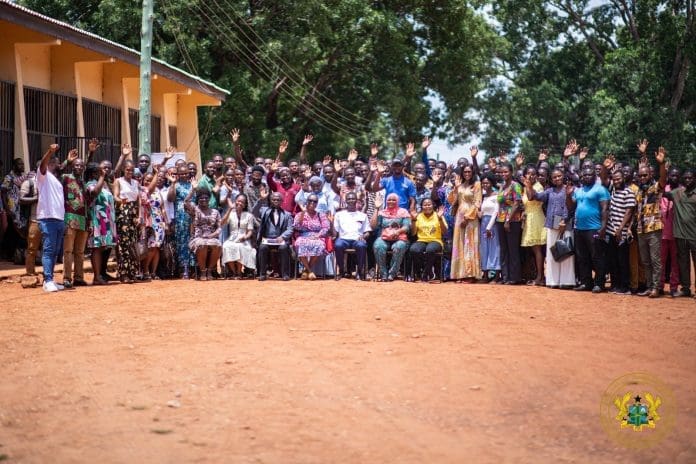The National Girls-In-ICT Programme today commenced a five-day Training of Trainers (TOT) workshop at Damongo Senior High School in the Savannah Region, targeting the capacity building of 100 teachers in digital skills.
The initiative, spearheaded by the Ministry of Communication, Digital Technology and Innovations, aims to equip teachers with practical knowledge in computer programming, coding, Scratch, cybersecurity, animation, game development and other digital literacy.
The trained educators are expected to, in turn, mentor and train 1,000 girls drawn from all districts of the Savannah Region.
Delivering welcome remarks on behalf of the Regional Minister, the Chief Director of the Savannah Regional Coordinating Council, Mr. Ebenezer Amoah, commended the Ministry and its partners for prioritising digital literacy for young girls.
He emphasised the importance of the programme in bridging the gender gap in technology and preparing the next generation for opportunities in the digital economy.
Mr. Austin Hesse, Director of Policy, Planning, Budgeting, Monitoring and Evaluation (PPBME), addressed participants on behalf of the sector Minister, Hon. Samuel Nartey George (MP). He reiterated government’s commitment to advancing digital inclusion and noted that the training was an essential step in nurturing a strong foundation for the region’s future ICT leaders.
According to him, the Training of Trainers workshop is part of the broader National Girls-In-ICT Programme, a flagship initiative aimed at empowering girls with digital skills, boosting their confidence, and fostering greater participation of women in Ghana’s ICT sector.
Speaking on the training modules, Madam Priscilla Hope of the Ghana-India Kofi Annan Centre of Excellence in ICT (GI-KACE) outlined the structure of the programme and formally introduced the team of instructors, all from GI-KACE. She highlighted the hands-on approach of the training, designed to ensure teachers acquire both theoretical knowledge and practical skills.
Mr. Bawa Shaibu, Head of Training at the Ghana Investment Fund for Electronic Communications (GIFEC), also addressed participants, explaining the Fund’s role in supporting digital inclusion projects across the country. He assured that GIFEC remained committed to providing the infrastructure and support necessary to make such capacity-building programmes sustainable.
Source: newsghana.com.gh











